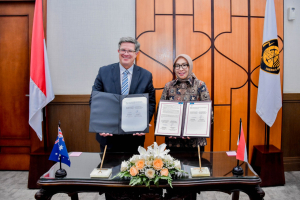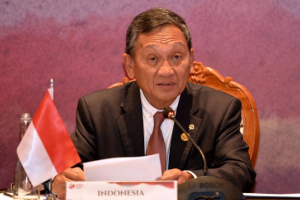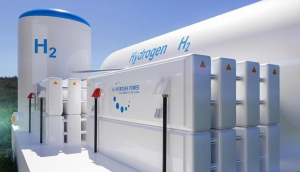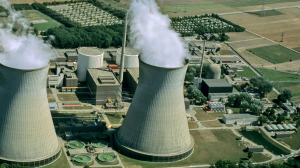Indonesia fast-tracks nuclear power plant development to boost growth, sustainability
The government is determined to accelerate the target of building nuclear power plants (PLTN) in 2029-2032, a commitment stipulated in the draft of National Electricity General Plan (RUKN) 2025-2060.
Yuliot Tanjung, Deputy Minister of Energy and Mineral Resources (ESDM), said that the acceleration is carried out, among other things, to support economic growth of 8 percent in 2029. The addition of electricity supply is prepared by optimizing renewable energy-based power plants.
In 2025, the government is targeting a new renewable energy (EBT) mix of 16 percent. Meanwhile, in 2044, the EBT portion is targeted to reach 52 percent or more of the fossil energy mix. This energy mix will continue to increase to 74 percent in 2060.
Yuliot predicts that carbon emissions will continue to decline to 0 emissions by 2060.
"Compared to the baseline, it will drop significantly to 2 billion tons in 2060," Yuliot said on Thursday, January 23, 2025.
Previously, the Indonesian government planned to immediately build an on-grid nuclear power plant (PLTN) facility of 250 megawatts (MW) in 2032. An on-grid power plant is an electricity system that is connected to the local utility network.
Eniya Listiani Dewi, Director General of New, Renewable Energy and Energy Conservation (EBTKE) of the Ministry of Energy and Mineral Resources said that this was in accordance with the target set in the draft revision of the Government Regulation (PP) on the National Energy Policy (KEN).
"In the National Energy Policy that was ratified last night, nuclear power will start in 2032, on-grid. So from now on we have to prepare. There are only nine years left. We have to prepare 250 MW on-grid. It's already on the track," Eniya said in September 2024.
She assessed that in order to realize the plan, there needs to be human resource development, as well as choosing a clearing technology scheme, including small modular reactors (SMR), high temperature gas cooled reactors (HTGR) or thorium.
In addition, she assessed that for security issues, the Ministry of Energy and Mineral Resources will form a national nuclear organization that oversees and supervises the construction of nuclear power plants. The organization will be under the coordination of the Ministry of Energy and Mineral Resources.
Tag
Already have an account? Sign In
-
Start reading
Freemium
-
Monthly Subscription
30% OFF$26.03
$37.19/MonthCancel anytime
This offer is open to all new subscribers!
Subscribe now -
Yearly Subscription
33% OFF$228.13
$340.5/YearCancel anytime
This offer is open to all new subscribers!
Subscribe now






